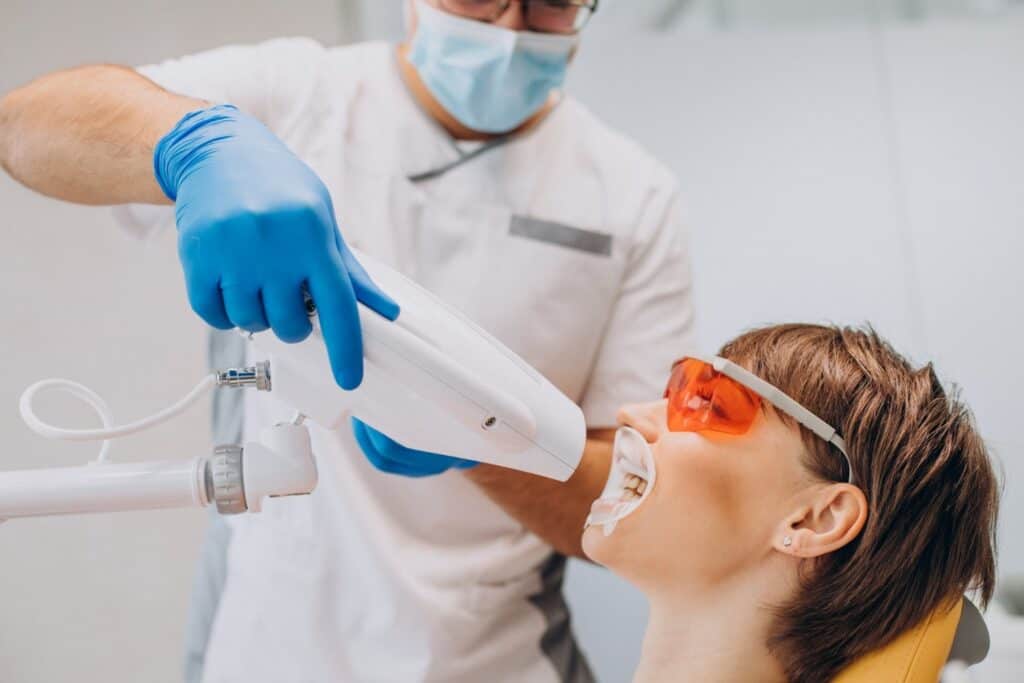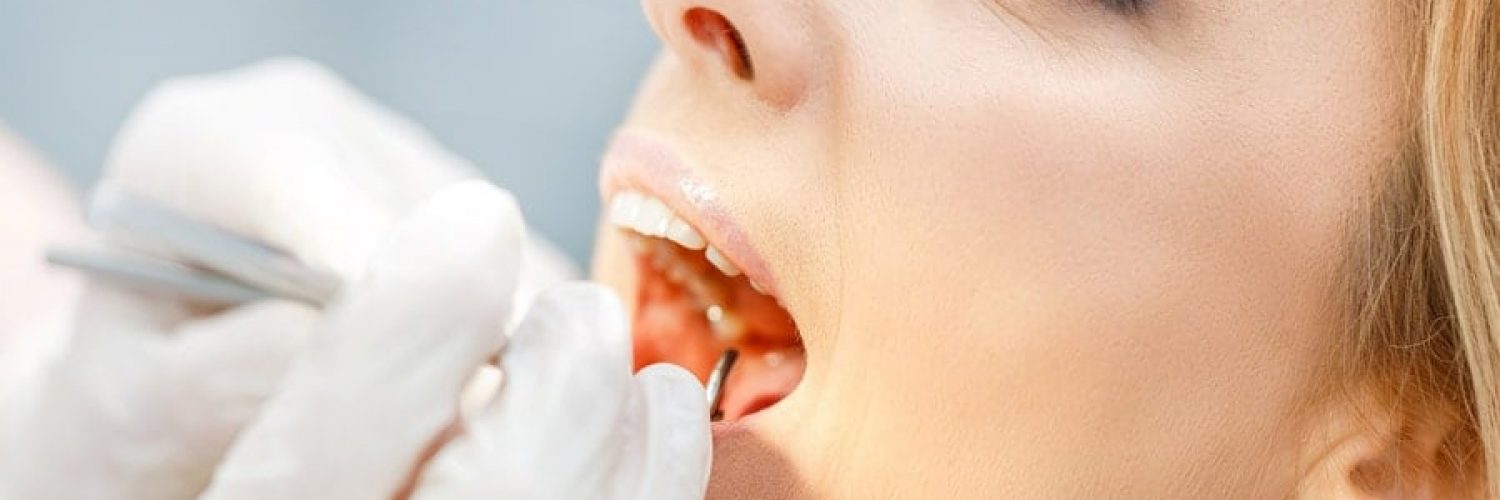Maintaining optimal oral health is essential for overall well-being, and regular dental cleanings play a crucial role in achieving this goal. Regular dental cleanings, often referred to as routine dental cleanings, are more than just a cosmetic procedures—they are a preventative measure that helps maintain the health of your teeth and gums. In this comprehensive guide, we will explore the importance of regular dental cleanings, the process involved, and how it differs from deep dental cleaning. We will also delve into common oral health issues that can arise from neglecting routine cleanings, and how regular visits to your dental hygienist can prevent gum disease, plaque and tartar buildup, and other oral health concerns.
The Importance Of Regular Dental Cleanings
Regular dental cleanings are essential for maintaining good oral health. These cleanings, typically performed by a dental hygienist, involve removing plaque and tartar buildup from the teeth and gum line, which can otherwise lead to gum disease, cavities, and other oral health issues. Routine cleanings are recommended at least twice yearly to keep your teeth and gums healthy.
The Benefits Of Regular Dental Cleanings
The benefits of regular dental cleanings go beyond simply having clean teeth. These routine cleanings play a crucial role in maintaining overall oral health and preventing common oral health issues. Some of the key benefits include:
Prevention of Gum Disease: Regular dental cleanings remove plaque and tartar buildup that can lead to gum disease, helping to keep your gums healthy and prevent gingivitis and periodontitis.
Cavity Prevention: Plaque is the leading cause of cavities. By removing plaque during routine cleanings, you reduce your risk of developing cavities and tooth decay.
Fresher Breath: Plaque and tartar buildup can cause bad breath. Regular cleanings help eliminate the bacteria responsible for bad breath, leaving your mouth feeling fresh and clean.
Early Detection of Oral Health Issues: During your cleaning, your dentist or hygienist can identify early signs of oral health problems, such as cavities, gum disease, and oral cancer. Early detection is key to successful treatment.
Improved Overall Health: Oral health is closely linked to overall health. Regular dental cleanings can reduce your risk of developing other health issues, such as heart disease, diabetes, and respiratory problems, by keeping your mouth healthy.
Lorem ipsum dolor sit amet, consectetur adipiscing elit. Ut elit tellus, luctus nec ullamcorper mattis, pulvinar dapibus leo.
Routine Dental Cleanings Vs. Deep Dental Cleaning
While routine dental cleanings are crucial for maintaining oral health, some individuals may require a more intensive cleaning known as deep dental cleaning. This type of cleaning, also referred to as scaling and root planing, is necessary when plaque and tartar buildup has progressed to a point where it threatens the health of the gums and teeth. Deep cleanings are typically recommended for individuals who show signs of gum disease, such as gum inflammation or bleeding.
What Happens During Routine Dental Cleaning?

During a routine dental cleaning, your dental hygienist will follow a series of steps to ensure your teeth are thoroughly cleaned and free from plaque and tartar.
Oral Examination: The dental hygienist will start by examining your mouth, looking for any signs of oral health issues such as cavities, gum disease, or oral cancer. This step is crucial for identifying potential problems early on.
Plaque and Tartar Removal: Using specialized tools, the dental hygienist will remove plaque and tartar buildup from the surface of your teeth and along the gum line. Tartar is hardened plaque that can only be removed through professional cleaning. Regular cleanings help prevent tartar buildup, which can lead to gum disease and other oral health issues.
Teeth Polishing: After removing plaque and tartar, your teeth will be polished using a gritty toothpaste and a high-powered electric brush. This process helps remove surface stains and leaves your teeth feeling smooth and clean.
Flossing: The dental hygienist will then floss your teeth, ensuring that all food particles and plaque are removed from between your teeth and along the gum line.
Fluoride Treatment: In some cases, a fluoride treatment may be applied to your teeth to help strengthen the enamel and protect against cavities. This treatment is particularly beneficial for individuals prone to tooth decay.
Oral Cancer Screening: During the cleaning appointment, your dental hygienist may also perform an oral cancer screening. This screening involves checking your mouth, throat, and neck for any signs of abnormal growths or lesions that could indicate oral cancer.
Signs You May Need A Deep Cleaning
If you experience any of the following symptoms, your dentist may recommend a deep dental cleaning:
Persistent bad breath
Gum inflammation or bleeding
Receding gums
Loose teeth
Deep pockets between your teeth and gums
These symptoms are often indicative of gum disease, which, if left untreated, can lead to tooth loss and other serious oral health issues.
The Deep Cleaning Process
The deep cleaning process is typically divided into two phases: scaling and root planing.
Scaling: Scaling involves removing plaque and tartar from the surface of the teeth and below the gum line. The dental hygienist uses specialized tools to clean the deep pockets that have formed between the teeth and gums.
Root Planing: Root planing smooths out the roots of the teeth, making it more difficult for plaque and tartar to accumulate in the future. This process also helps the gums reattach to the teeth, reducing the size of the pockets and preventing further gum recession.
Deep cleanings are often performed over multiple appointments, especially if the plaque and tartar buildup is extensive. After the procedure, patients may experience some discomfort, but this typically subsides within a few days.
How Often Should You Schedule Regular Dental Cleanings?
Most dental professionals recommend scheduling regular dental cleanings every six months. However, the frequency of cleanings may vary depending on your individual oral health needs. For example, individuals with a history of gum disease or those prone to tartar buildup may need more frequent cleanings to maintain optimal oral health. Conversely, individuals with excellent oral hygiene and no history of gum disease may be able to extend the time between cleanings.
It’s essential to keep up with regular dental cleanings, even if your teeth and gums feel healthy. Many oral health issues, such as gum disease and cavities, can develop without noticeable symptoms in the early stages. Regular dental cleanings allow your dentist to catch these issues early and provide treatment before they progress.
Final Thoughts
Deep cleanings are vital for treating and preventing gum disease by removing plaque and tartar buildup. This procedure helps restore oral health, promotes gum reattachment, and prevents further dental issues. Although more intensive than regular cleanings, deep cleanings are essential for maintaining a healthy smile and overall well-being. Prioritizing deep cleanings and following good oral hygiene practices can prevent serious dental problems and ensure long-term oral health.
Ensure your smile stays healthy and bright with expert care from Eagle Rock Dental Care in Idaho Falls. Whether you need a routine cleaning or more advanced dental treatment, our team is here to provide the highest level of care. Schedule your deep cleaning appointment today and take the first step towards maintaining a lifetime of optimal oral health. Call us nowor book online to get started!

